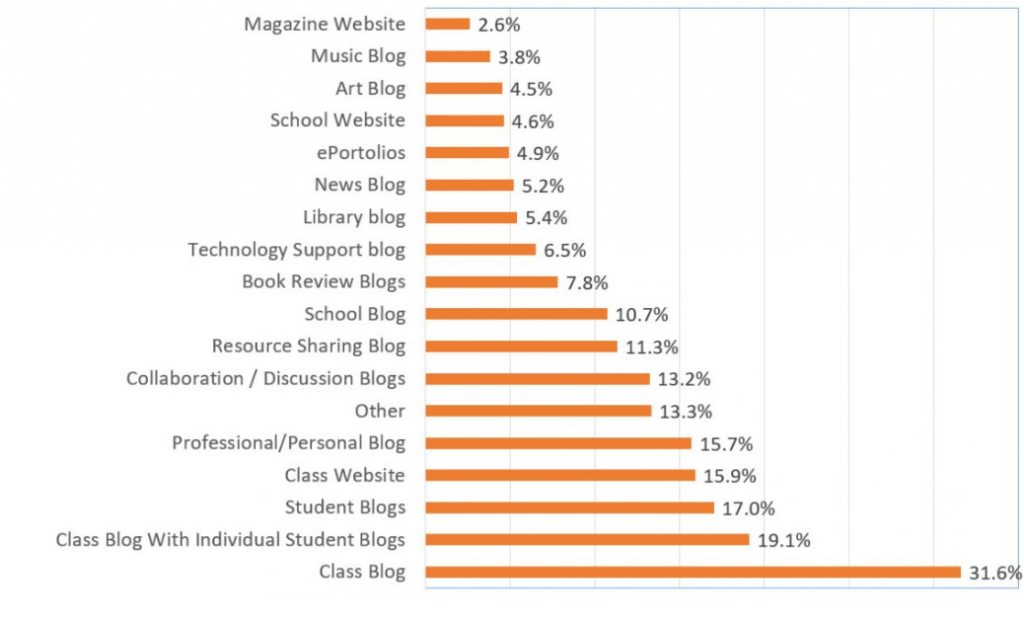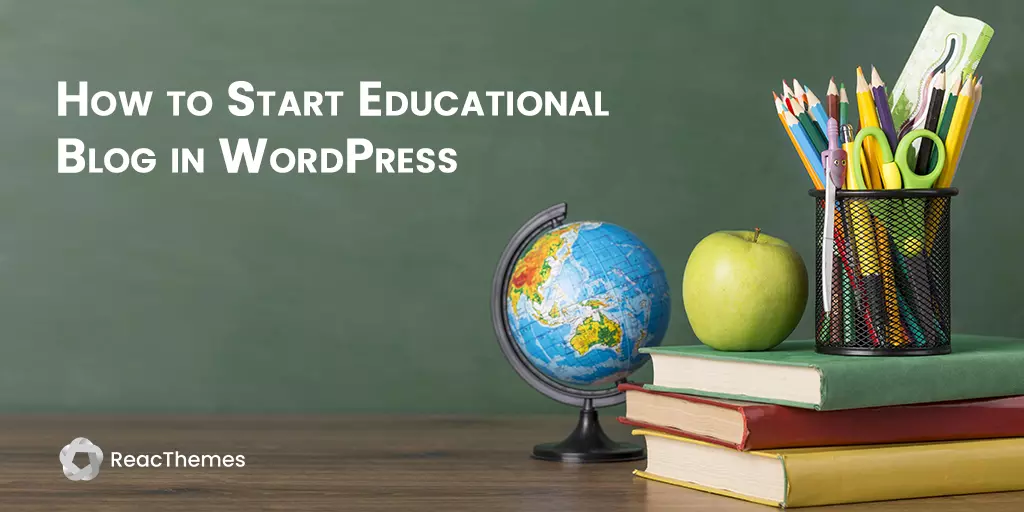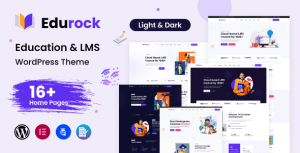Blogging has become a popular way to share information and communicate with others on the internet. Educational blogs are a great way to share knowledge and connect with others who have similar interests. Also, there are many benefits to starting an educational blog. It can be a great way to build up your credibility as an expert in your field. Plus, it can be a fun and creative outlet for you to express yourself.
Now, if you wonder how to start educational blog, then you have come to the right place. In this article, we will cover everything that will give you a kickstart on educational blogs. So, without any more fusses and feathers, let’s get the ball rolling on.
Defining an Educational Blog
There are many types of blogs out there on the internet. So, how does one define an educational blog? According to Merriam-Webster, a blog is “a website that contains online personal reflections, comments, and often hyperlinks provided by the writer.” When it comes to education, a blog can be used as a platform to discuss and reflect on educational topics, share resources, or provide pedagogical insight. In other words, an educational blog is a space where educators can connect with each other and share ideas about teaching and learning.
One popular example of an educational blog is Edutopia, which is run by the George Lucas Educational Foundation. Edutopia’s mission is to “provide educators with proven and innovative strategies that empower them to improve education for all learners.
Why Start an Educational Blog?
There are many reasons why you might want to start an educational blog. Maybe you’re a teacher who wants to share your knowledge with the world. Maybe you’re a student who wants to help others learn. Whatever your reason, starting an educational blog can be a great way to make a difference in the lives of others.
Here are just a few reasons why you should start an educational blog:
You can reach a wide audience
If you start an educational blog, you’ll be able to reach people all over the world. Moreover, you’ll be able to share your knowledge with anyone who has an internet connection.
You can make a difference in the lives of others
By sharing your knowledge on your blog, you can help others learn and grow. If you have something valuable to share, an educational blog can be a great platform to do so. Meaning, your shared knowledge with others make difference in their lives.
You can professionally develop yourself
A blog can be a great tool for professional development. It can educate you on how to professionally spread the light of knowledge among the learners.
Who Will Read Your Educational Blog?
We all have different reasons for wanting to start an educational blog. Maybe you want to share your knowledge with the world, or maybe you want to build a platform to help you land your dream job. But no matter what your reason is, you’re probably wondering who will actually read your blog.

Source: theedublogger
Here are three types of people who are likely to read your educational blog:
i. Students
If you’re blogging about education-related topics, then it’s likely that students will be interested in reading your content. After all, they’re the ones who are directly affected by the education system. They might be looking for information on specific topics that they’re struggling with, or they might just be curious about what others have to say about education. Either way, if you’re providing valuable and insightful content, then students will definitely be interested in reading your blog.
ii. Parents
There are many reasons why parents would read your educational blog. As a parent myself, I can think of a few reasons off the top of my head.
The first reason is that they want to know what their children are learning in school. If you’re providing information about what’s going on in the classroom, then parents can be better informed about how their child is progressing. They can also use your blog as a resource to help their child with homework or other assignments.
Another reason why parents might read your blog is for tips and advice on parenting. If you’re sharing your own experiences as a parent, then other parents can benefit from your wisdom. You might also offer helpful tips on dealing with common parenting challenges, such as potty training or tantrums.
iii. Educators
There are several reasons why educators might read your educational blog. First, they may be looking for new and innovative ideas to bring into the classroom. Secondly, they may want to get a better understanding of how you teach certain concepts or skills. Finally, they may simply enjoy reading about education and find your blog to be a valuable resource.
If you are an educator who writes an educational blog, it is important to remember that your audience is made up of other educators. Keep this in mind when creating content for your blog. Write about topics that would be of interest to other educators and provide valuable information that they can use in their own classrooms. By doing so, you will ensure that your blog is one that educators will continue to read and value.
How to Start Educational Blog in WordPress-Ways That Triumph
If you’re passionate about education and want to share your knowledge with others, starting an educational blog is a great way to do it. Here are some tips on how to get started:
1. Set your niche
It’s important to set your niche before starting your blog. This will help you attract readers who are interested in your content.
When setting your niche, think about what topics you want to cover on your blog. Do you want to focus on one particular subject, or write about a variety of topics? Once you’ve decided on your niche, it’s time to start creating content for your blog!
2. Come up with a catchy name
Think about what you want your blog to be about. What kind of topics will you cover? What’s your niche? Once you have a good understanding of the focus of your blog, you can start brainstorming names that reflect that. Then, keep it short and sweet. A shorter name is easier to remember and more likely to stick in someone’s mind.
Also, make it unique. There are millions of blogs out there, so you’ll want yours to stand out from the rest. Brainstorm some names that are truly unique and memorable. Finally, avoid using common words or phrases.
3. Design your blog
Designing your blog to start an educational blog can be a daunting task. But with a little planning and some creativity, you can create a professional and stylish blog that will help you educate others.
To start, think about what topics you want to cover on your blog. Do you want to focus on one particular subject, or offer a variety of educational content? Once you know what kind of content you want to provide, you can start planning your design.
When it comes to the design of your blog, there are a few things to keep in mind. First, consider the overall look and feel of your site. You want it to be visually appealing and easy to navigate. Second, think about how you want to present your content. Do you want to use text, images, video, or a combination of all three? Whatever you want, do it.
4. Create content
The educational blog should aim to provide value to readers by offering insights, perspectives, and information that is not readily available elsewhere. When creating content for an educational blog, it is important to consider the needs of your audience. What are they looking to learn? What type of information do they need? Keep in mind that your blog should be a resource for them, so make sure to include helpful tips, links to relevant articles, and anything else that would be useful for someone trying to learn about the topic.
5. Promote your blog
Promoting your blog comes into play once you have finished finishing the blog. You can do this by writing guest posts on other blogs, participating in online forums, and using social media to share your content. Once you have a following, you can start creating informative and engaging content that will educate your readers. Be sure to proofread your posts and use proper grammar, as this will make your blog more credible.
Bonus Tips: How to Monetize an Educational Blog
Monetizing an educational blog should be your first priority especially when you want to make it a money-making machine. Now, if you’re looking to monetize your educational blog, there are a few options available to you.
Advertisements
There are a few things to consider when monetizing an educational blog with advertisements. First, what type of ads will be the most effective? There are many options including banner ads, text links, and even video ads. Second, where should the ads be placed? Ad placement is key to getting the most out of advertisements. The third and final consideration is how often the ads should run.
All in all, monetizing an educational blog with advertisements can be a great way to earn some extra income. By carefully considering the type of ads, placement, and frequency, bloggers can maximize their earnings potential.
Affiliate marketing
If you’re an educational blogger, there are plenty of affiliate marketing opportunities available to monetize your blog. Here are a few programs to consider:
- Amazon Associates is one of the most popular affiliate programs out there. You can sign up for free and earn commissions on qualifying purchases made through your blog
- ShareASale is another great option for educational bloggers. They offer a wide range of merchant partners, so you’re sure to find some that fit your niche. Plus, they provide tools and resources to help you succeed with their program
- Commission Junction is another well-known affiliate network with plenty of merchant options. They also have a variety of resources available to help you get started and be successful with their program
Provide educational service
This type of service provides valuable content to readers while also generating revenue for the blog owner. The key to success with this type of business model is to create high-quality, engaging content that will attract and retain an audience.
Promote products and services
You can promote products and services on your blog and earn commissions on sales. Finally, you can also sell products and services directly from your blog
Culmination on How to Start Educational Blog
In conclusion, if you are passionate about education and want to share your knowledge with others, starting an educational blog is a great way to do so. It can be challenging to come up with new and interesting content, but by being creative and staying true to your passions, you can create a successful blog that makes a difference in the lives of others.
Thanks for reading!







